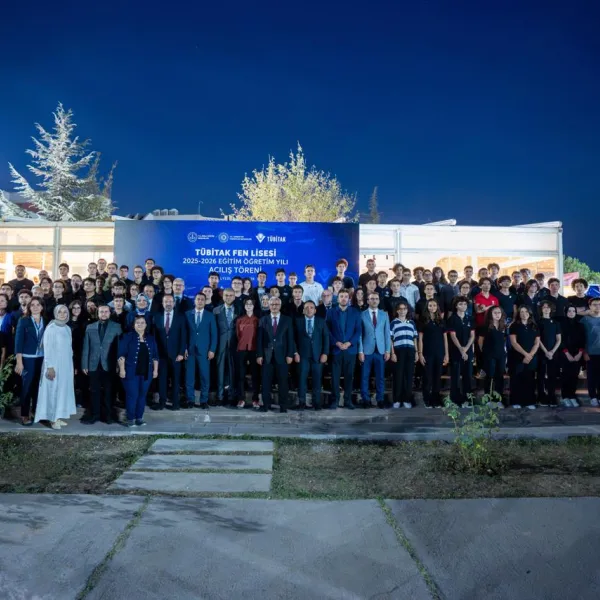
Under the auspices of the Presidency, under the administration of the Ministry of Industry and Technology, and coordinated by TÜBİTAK MAM Polar Research Institute, an 11-member scientific team carried out the 3rd National Arctic Scientific Research Expedition. After a month-long journey that witnessed numerous firsts, the team concluded their scientific activities and returned to Türkiye.
This year, for the first time, Türkiye hosted international researchers in national Arctic expeditions, thus enhancing its presence in the region.
The research team consisted of members from TÜBİTAK, the Turkish Naval Forces, the General Directorate of Meteorology, the Anadolu Agency, research institutes, universities, and foreign scientists participating through bilateral cooperation. They embarked on the "PolarXplorer," a 62-meter Norwegian-flagged research vessel. The expedition reached the sea ice limit located at 81 degrees north latitude.
The collaboration between the Brazilian Ministry of Science, Technology, and Innovation and TÜBİTAK, initiated through a Memorandum of Understanding in 2022, was realized during this expedition.
Illuminating Climate Change
Since the inception of scientific records, the expedition team focused on understanding climate change, especially during July 2023, which recorded the highest monthly average temperatures in the world.
The team completed sampling and measurements at 28 different stations, covering various scientific disciplines. The expedition contributed to 14 different projects in Barents Sea, shedding light on marine and aquatic sciences, fish, marine ecosystems, phytoplanktons, anthropogenic pollutants in the sea, monitoring physical parameters of sea water, and microplastics. Atmospheric pollution observations, meteorological studies, assessment of new maritime trade routes' environmental impacts, observation of sea ice, and monitoring of marine mammals were among the diverse range of studies conducted during the expedition. Throughout their approximately 5,500-kilometer journey, the team observed a range of wildlife, including humpback whales, Minke whales, dolphins, various seal species, walruses, polar bears, and numerous bird species, as they sailed through the Barents Sea and past Svalbard's archipelago.
Inclusion of a Student in the 2204-D Project
The winner of the TÜBİTAK BIDEB 2204-D High School Students Climate Change Research Projects competition had the opportunity to test their project in the Arctic Ocean during the expedition. The winning project involved using fibers derived from the Eastern Plane tree's fruit, placed inside bags, to clean up ocean surface oil pollution. This innovative material showed potential in addressing oceanic oil pollution. Prof. Dr. Burcu Özsoy, the Coordinator of the 3rd National Arctic Scientific Research Expedition, commented, "One of the major risks in maritime is the spread of oil pollution on the sea surface. Although technologies to tackle oil pollution have been under development for a long time, an efficient solution has not yet been achieved. This student's project represents an important step in this direction." The testing of the project was conducted in the Arctic Ocean, carefully considering environmental impacts.
During the expedition, the team visited the Polish Polar Research Station, Barentsburg, which hosts Russian research stations, the former mining town Pyramiden also ex Russian mining town, and the Korean station in Ny Alesund.
The team also interacted with foreign researchers during their visit to the Barentsburg Scientific Research Center, gaining insights into their work. Additionally, the team handed over research samples collected during the expedition to the Italian research station, as part of international collaboration. They also made a brief stop in Ny-Alesund, a town with 12 different research stations from various countries, situated at 79 degrees north latitude. The team took a collective photograph at the statue of Norwegian explorer Roald Amundsen, who first reached the North Pole and later the South Pole. On Svalbard Island, there are 20 research facilities representing 13 countries, dedicated to scientific endeavors related to the Arctic and the Arctic Ocean.
The initial findings of the Arctic research expedition will be shared with the scientific community during the 7th National Polar Sciences Symposium, scheduled for November 30 - December 1.
The 8th Turkish Antarctic Expedition is planned for January to March 2024, where researchers will work to gather information on the world's other polar region and global climate change.





